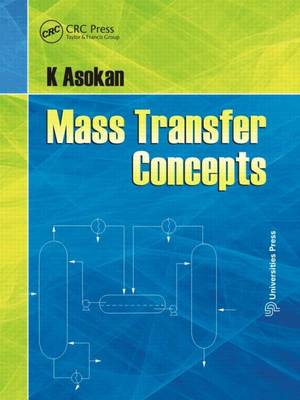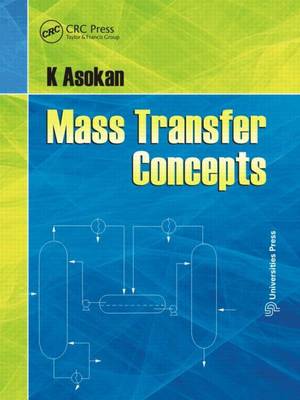
- Retrait gratuit dans votre magasin Club
- 7.000.000 titres dans notre catalogue
- Payer en toute sécurité
- Toujours un magasin près de chez vous
- Retrait gratuit dans votre magasin Club
- 7.000.0000 titres dans notre catalogue
- Payer en toute sécurité
- Toujours un magasin près de chez vous
Description
Mass transfer involves the use of various operations to separate a mixture into its individual components--a frequent requirement in chemical industries. The differences in the physical properties of the components to be separated, such as the vapour pressure, solubility or diffusivity, are utilized to transfer material from one homogenous phase to another. Techniques such as gas absorption, distillation, leaching, extraction, crystallization, humidification, drying, adsorption and membrane based separation processes involve mass transfer and can be carried out due to the existence of a concentration gradient within the system.
Mass Transfer Concepts supplies engineers with the required knowledge of all these operations. Designed for a two-semester course in chemical, biotechnology, petrochemical, and pharmaceutical engineering, the book provides a simple treatment of the concepts, definitions, and derivations with numerous figures and worked examples typical of their industrial applications. A number of exercise problems with solutions help clarify key concepts.
Spécifications
Parties prenantes
- Auteur(s) :
- Editeur:
Contenu
- Nombre de pages :
- 416
- Langue:
- Anglais
Caractéristiques
- EAN:
- 9781439868065
- Date de parution :
- 26-05-11
- Format:
- Livre relié
- Format numérique:
- Genaaid
- Dimensions :
- 178 mm x 246 mm
- Poids :
- 952 g

Les avis
Nous publions uniquement les avis qui respectent les conditions requises. Consultez nos conditions pour les avis.






